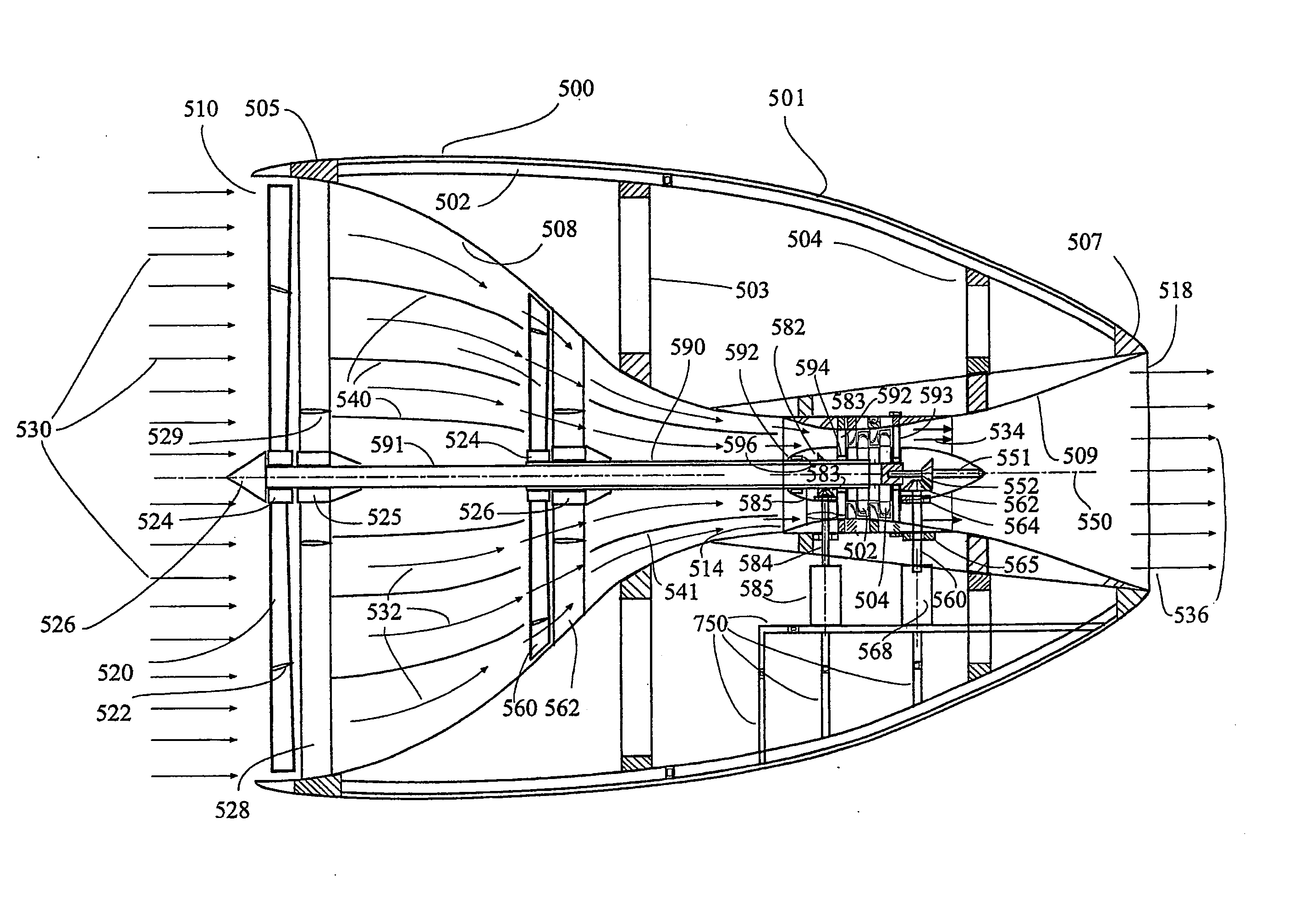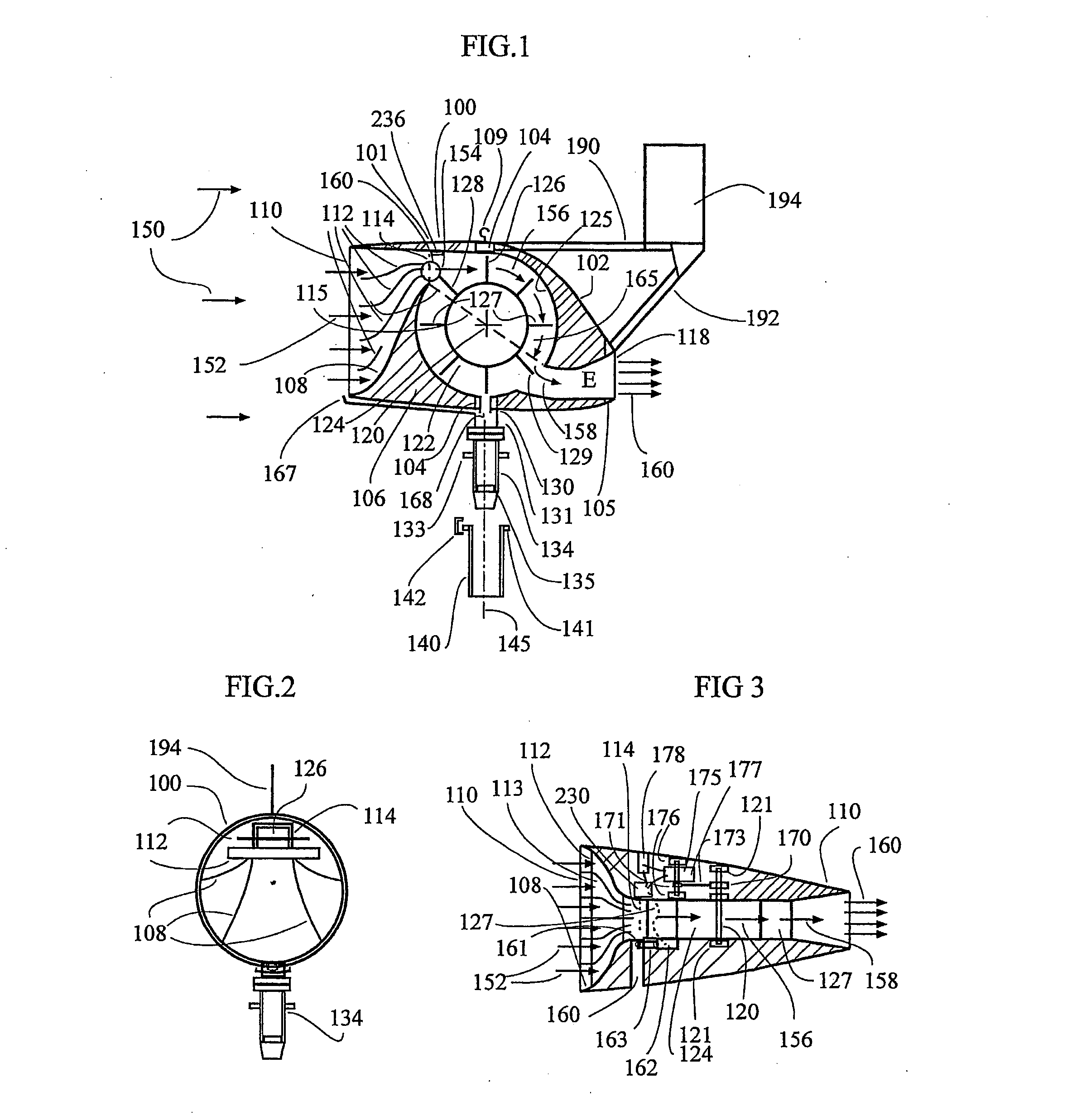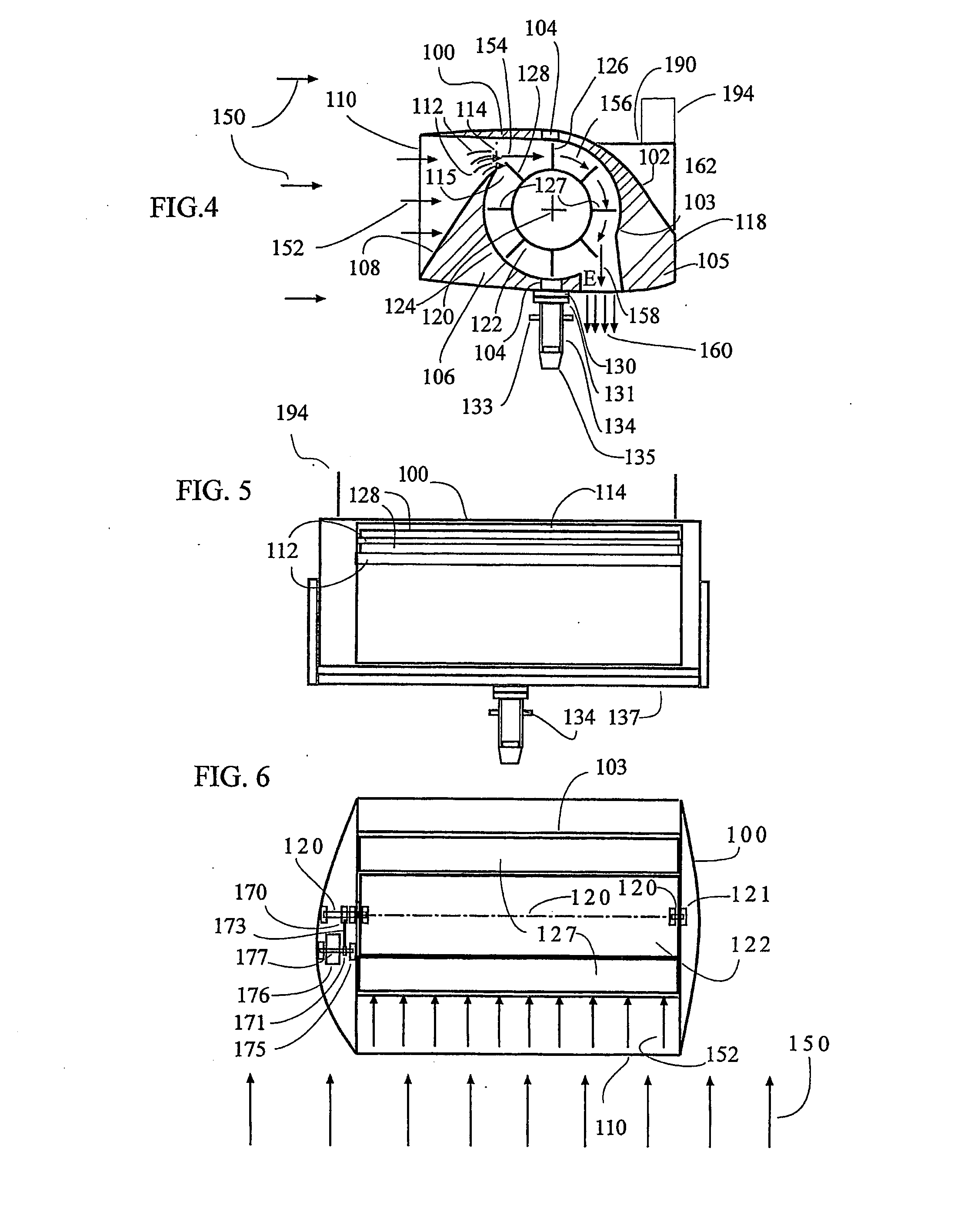Use of Air Internal Energy and Devices
a technology of internal energy and air, applied in the direction of liquid fuel engine components, non-positive displacement fluid engines, cosmonautic vehicles, etc., can solve the problems of low efficiency, large turbines, heavy and expensive, etc., to increase the mass flow rate and speed of sound, increase the energy production of turbines, and increase the effect of air flow energy
- Summary
- Abstract
- Description
- Claims
- Application Information
AI Technical Summary
Benefits of technology
Problems solved by technology
Method used
Image
Examples
Embodiment Construction
[0078] Today's wind turbines comprises of propellers, which are driven by airflow, i.e., wind. As wind increases, more kinetic energy is available to drive the propeller blades but since the propeller blades are big and heavy (about 11,000 kilograms per one blade), when the wind speed exceeds certain level, according to the blade strength and its attachment strength to the shaft, the rotation must be stopped to prevent centrifugal forces breaking the blade. Thus the air turbine stops its work and a lot of wind energy is wasted. On the other hand, when the wind is too weak, about 4 meter per second or less, even giant propellers are not put to work since the available kinetic energy is too small to rotate the giant air turbines. The present invention overcomes these obstacles and explains how the present invention air turbine can be compact and generates more electricity in weak winds as well as in high-speed winds.
[0079] Further, installing a powered fan that generates the airflow ...
PUM
 Login to View More
Login to View More Abstract
Description
Claims
Application Information
 Login to View More
Login to View More - R&D
- Intellectual Property
- Life Sciences
- Materials
- Tech Scout
- Unparalleled Data Quality
- Higher Quality Content
- 60% Fewer Hallucinations
Browse by: Latest US Patents, China's latest patents, Technical Efficacy Thesaurus, Application Domain, Technology Topic, Popular Technical Reports.
© 2025 PatSnap. All rights reserved.Legal|Privacy policy|Modern Slavery Act Transparency Statement|Sitemap|About US| Contact US: help@patsnap.com



